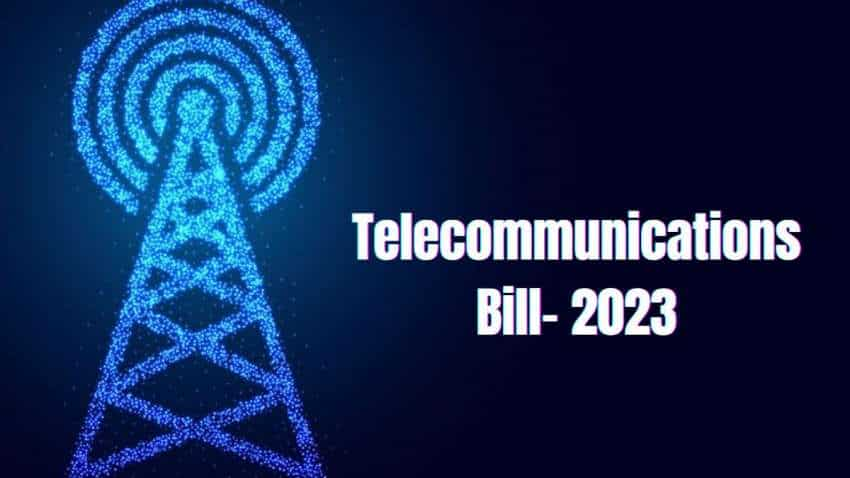Telecommunications Bill 2023: A Game Changer for India’s Telecom Sector?
Hey Qool Questers!
In this discussion, we’re delving into the intricacies of the newly introduced Telecommunications Bill 2023.
The Telecommunications Bill 2023 is a significant legislation in India that aims to replace the Indian Telegraph Act of 1885 and consolidate laws relating to the development, expansion, and operation of telecommunication services and networks.

Key Provisions of the Bill
• Regulation of OTT Services
The bill initially proposed to bring over-the-top (OTT) services under the definition of telecommunications. This would have subjected them to similar regulations as traditional telecom services, potentially raising concerns about privacy and freedom of expression. However, the final version of the bill is likely to eliminate the regulation of OTT communication apps from its ambit.
• Government Powers
The bill grants the government wide-ranging powers, including the ability to suspend or prohibit the use of telecom equipment from countries or individuals for national security reasons, take over, manage, or suspend any or all telecommunication services or networks in the interest of national security, and waive entry fees, license fees, penalties, etc., to promote consumer interests, market competition, or national security.
• Spectrum Allocation
The bill introduces a new system for allocating spectrum for satellite broadband services. This could potentially benefit rural areas and bridge the digital divide.
• Other Provisions
The bill also includes provisions for promoting research and development in the telecom sector, protecting consumer rights and ensuring data privacy, and facilitating the deployment of new technologies like 5G.
How Will This Bill Affect Consumers?
The bill is expected to have several impacts on consumers:
1. Consumer Protection: The bill proposes that prior consent should be taken for receiving certain messages such as promotional, advertising, etc. This could help reduce unwanted spam messages and enhance user privacy.
2. Adjudicating Mechanism: The bill proposes to have an adjudicating mechanism in place. In case of any breach of terms and conditions of the license, the adjudicating officer should pursue an inquiry and pass an order. This could provide a more robust mechanism for addressing consumer grievances.
3. Pricing and Competition: The bill is likely to grant powers to the Telecom Regulatory Authority of India (TRAI) to probe predatory pricing and take required action. This could potentially lead to more competitive pricing and better services for consumers.
4. Waiving Off Fees: The new bill proposes the government to be vested with the power to waive off entry fees, license fee, penalty etc. in the interest of consumers. This could potentially lead to cost savings for consumers.
5. OTT Services: Over-the-top (OTT) players, or apps, have been removed from the definition of telecommunication services in the bill. This means communication service providers such as WhatsApp and Telegram will remain out of telecom regulation, which could potentially impact the way consumers use these services.
How will this bill affect telecom companies?
The Telecommunications Bill 2023is expected to have several impacts on telecom companies:
• Regulation of OTT Services: Over-the-top (OTT) players, or apps, have been removed from the definition of telecommunication services in the bill. This means communication service providers such as WhatsApp and Telegram will remain out of telecom regulation. This could potentially impact telecom companies' competitive landscape.
• Spectrum Allocation: The bill introduces a new system for allocating spectrum for satellite broadband services. This could potentially benefit telecom companies by providing them with more opportunities to expand their services.
• Government Powers: The bill grants the government wide-ranging powers, including the ability to suspend or prohibit the use of telecom equipment from countries or individuals for national security reasons. This could impact telecom companies' operations and procurement strategies.
• Capital Infusion: Bharat Sanchar Nigam Limited (BSNL), which is expected to roll out 4G and 5G services this year, will get Rs 529.37 billion capital infusion from the government in 2023-24. This could potentially impact the competitive dynamics in the telecom sector.
• Customs Duty Relief: The government has proposed to provide relief in customs duty on import of certain parts and inputs such as camera lens and continue the concessional duty on lithium-ion cells for batteries for another year. This could potentially lead to cost savings for telecom companies involved in the manufacture of mobile phones.
• Revenue Collection: The government has raised the non-tax revenue collection estimate from the telecom sector by 30 per cent to Rs 894.69 billion in 2023-24. This indicates an expectation of increased revenue generation from the telecom sector.
Concerns About the Bill
There are several concerns about the Telecommunications Bill 2023:
• Potential for Government Overreach: The bill grants the government wide-ranging powers, including the ability to suspend or prohibit the use of telecom equipment from countries or individuals for national security reasons. This could potentially lead to government overreach.
• Content Censorship: The bill grants broad powers to regulate online content. This has raised concerns about potential content censorship and its impact on freedom of expression.
• Opaque Drafting and Consultation Process: Critics argue that the drafting and consultation process for the bill has been opaque and lacked sufficient involvement of key stakeholders. This has led to concerns about its effectiveness and fairness.
When Will This Bill Come Into Effect?
The Telecommunications Bill 2023 was introduced in the Lok Sabha on Monday, December 18, 2023. However, the exact date when the bill will come into effect has not been specified yet. Typically, the effective date is mentioned in the bill itself or determined by the government after the bill is passed. It's recommended to check the official government sources or news for the most accurate and up-to-date information.
Conclusion
The Telecommunications Bill 2023 signals the end of the Indian Telegraph Act of 1885, the Indian Wireless Telegraphy Act of 1933, and the Telegraph Wires (Unlawful Possession) Act of 1950. It’s a significant step towards modernizing India’s telecommunications laws. However, it’s not without its controversies and challenges. The potential for government overreach and content censorship, as well as concerns about the drafting and consultation process, highlight the need for ongoing dialogue and scrutiny as the bill is implemented. It’s important for all stakeholders, including consumers and telecom companies, to stay informed about these changes and understand how they might be affected.
I hope this discussion has provided you with a deeper understanding of the newly introduced Telecommunications Bill 2023. As we navigate through the evolving landscape of telecommunications in India, it’s crucial to stay informed about such significant legislations. I encourage you to continue the conversation and share your thoughts and insights.
Thank You
QOOL Quester
Please sign in
Login and share






















